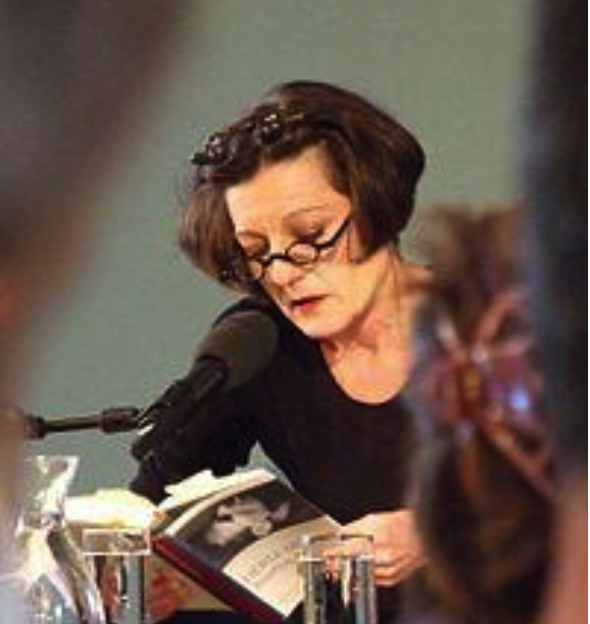PSYCHOANALYSIS AND LITERATURE: HERTA MÜLLER AND THE EUROPEAN HISTORY
Radu CLIT
Literature could offer interesting material for psychoanalysis. Writers are often very fine observers of human life, and even of social interactions and historical situations. From this standpoint, an interesting example is the work of Herta Müller, a writer who won the Nobel Prize for Literature in 2009.

Born in Romania in a German community, she writes mainly in German. She started her career with
Nadirs (Niederungen, 2010), a collection of short proses. The most important of them, carrying the title of the volume, depicts a village similar to the one she was born in. The narrator is a young girl who seems to feel alone within her family. Then, Herta Müller successively published four novels whose main characters are in struggle with the communist authorities. In
The Passport (Der Mensch is ein Grosser Fasan auf der Welt,1986), the protagonist is a man who wants to obtain passports for his family in order to emigrate to Germany. In the other three,
The Land of Green Plums (Herztier, 2007),
The Fox Was Ever the Hunter (Der Fuchs war damals schon ein Jäger, 1992) and
The Appointment (Heute wär ich, mir lieber nicht begegent, 1997), the main characters are women under the watch of secret police for different reasons.
The Hunger Angel (Atemschaukel, 2009) depicts a labour camp in the Soviet Union, after the end of the Second World War.
All these novels, except for the last, are quite close to the writer’s life experiences, as declared by herself in her volumes of essays, some of them biographical (Clit, 2018). What is quite evident from her debut, is what life was like under communist rule in her native Romania. As an adult, Herta Müller was watched and harassed by the secret police because she refused to cooperate with them. There is also a link with the situation of previous generations, who supported the Third Reich. Her father fought in the Waffen SS, but her mother was in a camp in the Soviet Union. So, her father supported Nazism, her mother was a victim of Communism, like Herta Müller herself. But in Nadirs, the main character is not loved and supported enough by her family and her German community. A lack of communication even between the adults is striking. The reasons for understanding this situation are offered by the novel describing the labour camp in the Soviet Union. This deportation was meant to punish Germans for their very important role in the Second World War. But in this way, the former aggressors became victims. At a factual level, in communist countries it was forbidden to talk about the war against Stalin. But at a deeper level, inside German communities, the fall of the Third Reich provoked an impossible mourning (Mitscherlich and Mitscherlich,1967). Deportation to labour camps was, in a way, the easy solution for coping with the trauma of having lost the war.
From the reader's standpoint, there is an interesting evolution from Nadirs to The Hunger Angel and the biographical essays. The young girl from Nadirs is rejected by her family and community but has no clues for understanding her situation. In The Passport, the hero feels simply humiliated by his failure to get the emigration documents and for needing his daughter’s help. Officially accepted by the regime, the procedure was complicated by its local representatives. The characters of the other three novels are in a more difficult situation because the secret police considered that they were a danger to the regime. In The Land of Green Plums (2010), the protagonist had a colleague at the university who apparently committed suicide - she used her girdle to do it. In The Fox Was Ever the Hunter (2016), the heroine - a teacher - declared that using school children for the work in the fields was against international law. The Appointment (2011) depicts a young woman's successive interviews with the secret police after she made a minor mistake at work. The last-mentioned novel, The Hunger Angel, was conceived with another writer who was effectively an inmate in a camp, like many Germans from the countries that fought against Stalin. In this way, the writer reconstructed the past prior to her birth, and could understand her mother's silence. This also helps to understand the young girl from Nadirs’ loneliness, but also the female characters' struggle with the secret police. Sometimes, these women were also children of people already targeted by this scary organisation. The writer also offers a transgenerational perspective and points out the difficulty of this kind of transmission in her native community.
Therefore, Herta Müller is also contributing to clarifying historical facts, but only indirectly. Her prose is not at all an attempt to rewrite or reconsider history. On the contrary, on one hand, a real narrative is absent from her texts, on the other hand, their context is very imprecisely described. Her strongest quality is her style (Clit, 2018), which is able to transmit very well the experience of the evoked typical social situations. At another level, the combination of her novels with the personal biographical details can lead to a relation with historical facts. She probably still finds it difficult to be the daughter of a man who fought in the Waffen SS and of a woman who had been deported to a labour camp in the Soviet Union. Even her first name belonged to her mother's best friend, who died in the camp. By confronting implicitly the two forms of totalitarianism, Herta Müller poses the question of the importance of history for understanding the social present. Psychoanalysis shows that the personal past forms the adult’s psychological functioning and his/her symptoms. History implicitly offers important clues for supporting this point of view at a social level. Literature is a possible way to deepen the understanding of the common past.
Bibliography
CLIT, R. (2018) Du trauma à l'écriture. Un point de vue sur la création littéraire de Herta Müller, Paris, L'Harmattan.
MITSCHERLICH, A., MISCHERLICH, M. (1967) Le deuil impossible. Les fondements du
comportement collectif, Paris, Payot, 1972.
MULLER, H. (1989). The Passport. Serpent's Tail, London, 93 p.
MULLER, H. (1999). Nadirs. University of Nebraska Press, Lincoln, 119 p.
MULLER, H. (2010). The Land of Green Plums, Picador, New York, 258 p.
MULLER, H. (2011). The Appointment. Portobello Books, London, 214 p.
MULLER, H. (2013). The Hunger Angel. Portobello Books, London, 290 p.
MULLER, H. (2016). The Fox was Ever the Hunter. Portobello Books, London, 237 p.
 Radu Clit
Radu Clit, PhD in clinical psychology from University of Paris, psychotherapist, group analyst and psychodramatist in Paris and Paris area. Candidate with the Paris Psychoanalytical Society. He published many papers and several books, the last on Herta Müller.